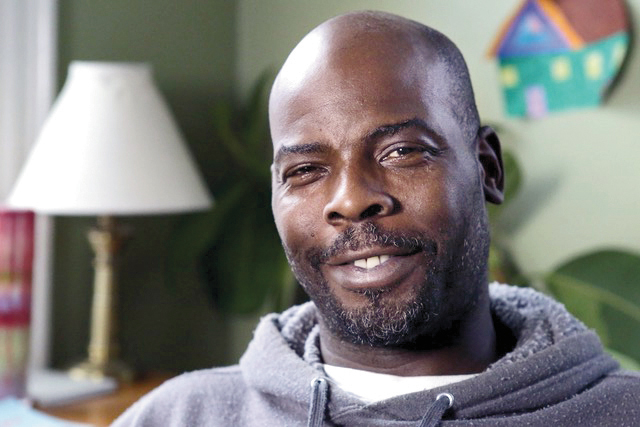A young girl makes the case for wraparound services and forgiveness
Jason Branch was the kind of father who taught his daughter to fish and borrow books from the library. “Then he didn’t come around for a while,” she wrote a few years ago. Her mother told Jaslyn that her dad was sick. “I was so sad,” Jaslyn recalled in her letter. Jaslyn waited for change.
It came through New Beginnings, a program of Spiritus Christi, which provides counseling and housing to men and women who have experienced homelessness, as well as prison time, in the Rochester, New York, area. In fact, the process of change starts inside prison with group meetings. On release, the former prisoners move to Jennifer House (for women) and Nielsen House (for men), where they get wraparound support, including drug and alcohol rehab, cognitive-behavioral and job counseling, and parent education. That’s where Jason Branch lived, and where Jaslyn reconnected with him. New Beginnings made it easy. Through a volunteer recreational therapist, the program offers rafting trips, zoo visits, and other family activities. “I have made new friends with other children who have fathers at Nielsen House,” Jaslyn wrote, “like Miguel, Victor, Meta, Chris … .” The next move is actual reunification. About 92 percent of parents who have gone through New Beginnings reconnect and live with their children.
In the advent of COVID-19, with support from the McGowan Fund, Spiritus Christi had begun expanding affordable housing options for graduating residents and their families. COVID didn’t put the brakes on developing new housing options so much as moving residents along. Jennifer House and Nielsen House went into lockdown. To minimize transmission during the peak of the pandemic, staff worked 24-hour shifts. “It was quite heroic,” says Jim Smith, executive director. A local grant contributed a small bump in staff pay. Meanwhile, “the residents bought into the idea. They looked at the bigger picture.” Still there have been compromises. Twelve-step meetings are conducted online. Crafts and other activities have slowed. Volunteers have been sidelined. Visits from family and others are limited.
The safeguards have worked. “Not one case of COVID,” reports Smith. But there has been an impact. Fewer jobs are available for residents who are ready to move on, so there’s less opportunity to achieve self-sufficiency. So far, six women from Jennifer House have landed jobs during the pandemic.
“I’m hopeful, through all of that,” Smith says.
The hopes are many: that safe jobs will become available, that the longstanding pipeline of addicted and unhoused prisoners might slow, that the in-person programs that helped Jaslyn and her father thrive will come back, full steam. “We go to church on Sundays,” Jaslyn wrote back when her father’s recovery was new. “I also participate with my dad on some Saturdays when Mrs. Betty comes to Nielsen House.”
“I love my dad so much.”

